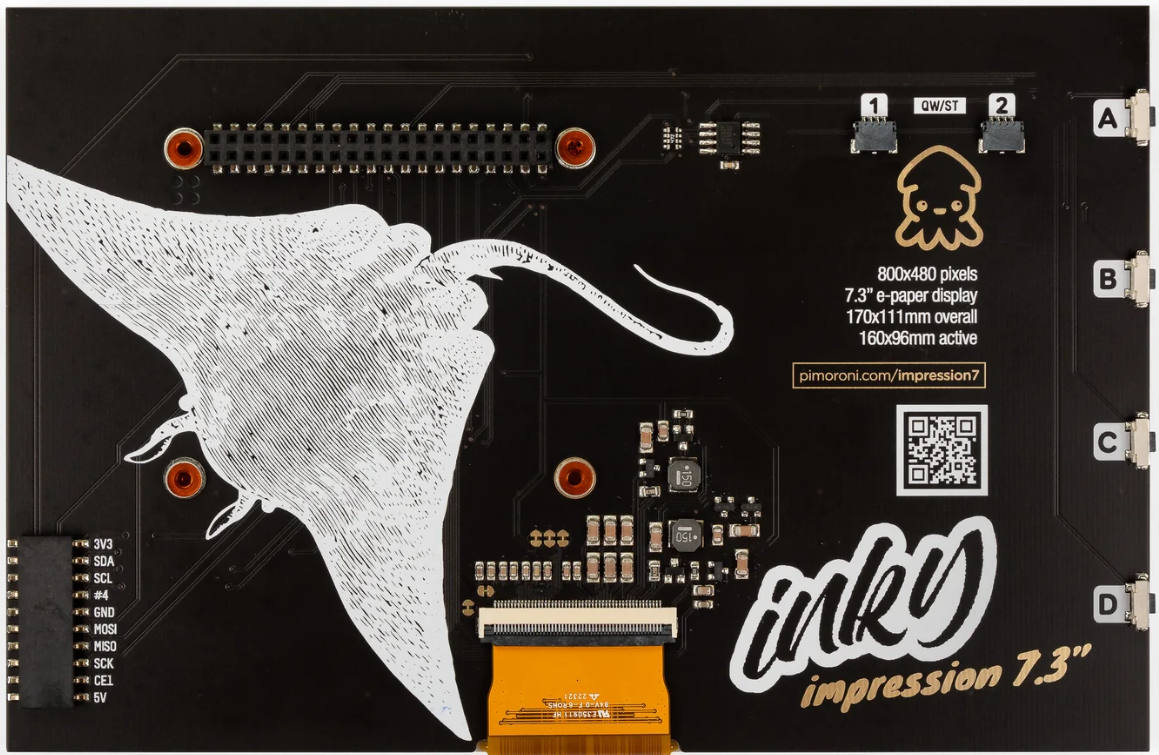- Posted on

Let's start from the beginning,
I'm a tech hoarder with a penchant for collecting embedded development hardware and coming up with projects that force me to learn, often I find myself flipping through projects and leaving things for an extended period when they get hard. After several months, I will face a harder problem as I progress, and looking for respite, I eagerly pick up the original project. Hopefully having a blog will help me launch back in from my drop-off points in the future.
Such is the case with my e-ink display, several months ago I picked up an 800x480p 7-color e-ink from a local retailer after doing minimal research (Unaffiliated link to the display from Pimoroni); when I went to use it I was surprised to see they only included a Python library! My original use was to have a slow refresh calendar that would update by push from a local server that sent bitmaps to a Raspberry Pi Nano.
Napkin math makes me reckon that the 800x480 display in a frame buffer would have to represent 512,000 pixels. So with the 264KB of onboard RAM on the Pico I would have to be careful since even a byte per pixel, (512KB), is just under double the total RAM available before even writing any code. Even still, I also presumed that I could use 3 bits for each pixel and have a 154KB data structure for a frame buffer that would also be quicker to iterate through when needed.
The Python library was a heartbreaker because I would have to use MicroPython. #1, I'm not even sure that's possible, #2, if it is possible I'm still not doing that when there is a wonderful C/C++ SDK for the device. I ended up getting a basic grasp for the few supported use cases of a 45-second refreshing, Python-driven display (with a glass panel, excellent resolution, and color clarity) with Python3 on Pi Zero W.